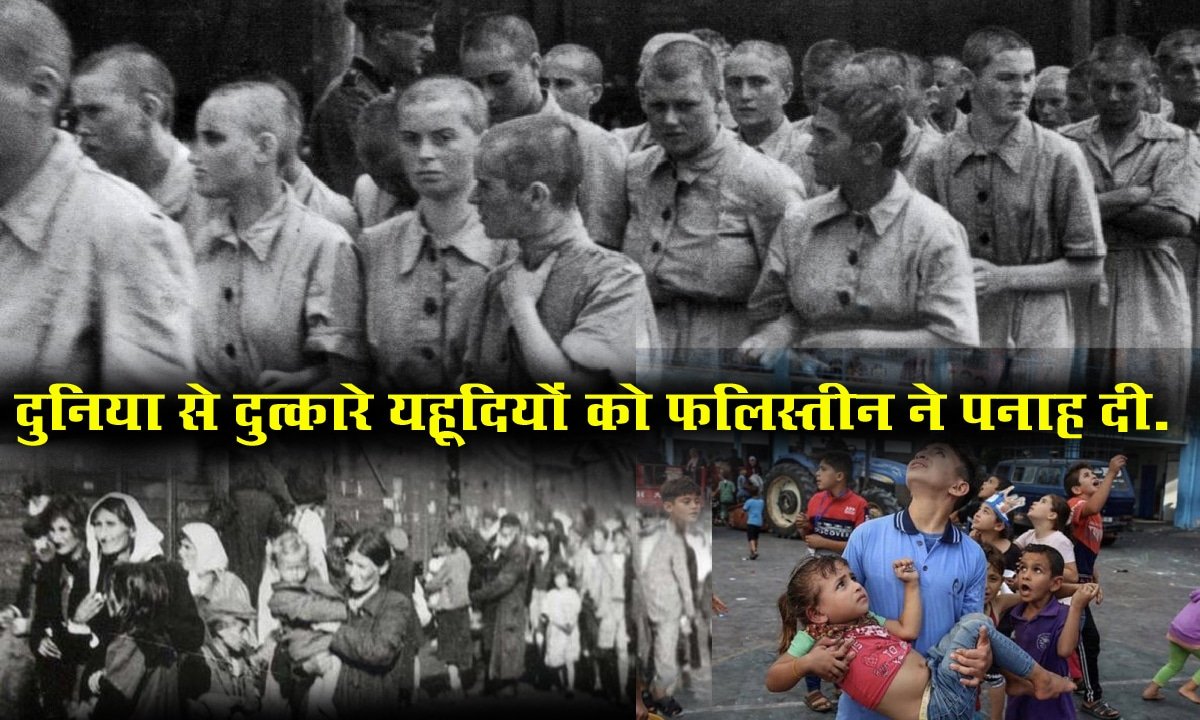The United States has announced that it plans to impose sanctions against Israelis who impede the delivery of humanitarian aid to Gaza. Canada’s Foreign Ministry also announced that it would impose sanctions against extremist Israelis in the West Bank who have committed violence. Extremist and terrorist groups there, are wreaking unprecedented terror on the local population.
इजराइल में हिजबुल्लाह की आग, जबालिया बना IDF का शमशान
The United States and Canada to Impose Sanctions on Israeli Extremist Groups and Individuals
In a significant policy shift, the United States and Canada have announced their intentions to impose sanctions on certain Israeli groups and individuals. These measures are primarily aimed at those who obstruct humanitarian aid to Gaza and those involved in violent activities in the West Bank. This move underscores a growing international concern about the escalating violence and humanitarian crisis in these regions.
United States’ Stance
The United States has decided to target Israeli individuals and groups that hinder the delivery of humanitarian aid to Gaza. This action comes amidst increasing global scrutiny of the humanitarian situation in Gaza, where the blockade and restrictions have severely impacted the lives of the local population. The blockade has been in place for over a decade, leading to widespread poverty, lack of essential services, and deteriorating living conditions.
The U.S. government’s decision reflects a broader strategy to address these humanitarian concerns and to hold accountable those who contribute to the suffering of the Gazan people. By imposing sanctions, the U.S. aims to pressure these individuals and groups to cease their obstructive actions and allow for the free flow of humanitarian aid. This approach is part of a larger effort to stabilize the region and promote peace and security.
Canada’s Response
Similarly, Canada has announced that it will impose sanctions against extremist Israelis in the West Bank who have committed acts of violence. The Canadian Foreign Ministry’s decision highlights the growing problem of settler violence in the West Bank, which has been a significant source of tension and conflict.
Canadian officials have expressed deep concern over the increasing incidents of violence perpetrated by extremist settlers against Palestinian residents. These acts of violence have included physical assaults, destruction of property, and intimidation, contributing to a climate of fear and instability. By imposing sanctions, Canada aims to send a clear message that such behavior is unacceptable and will have consequences.
The Context of Extremist and Terrorist Activities
The actions of these extremist and terrorist groups have created an atmosphere of unprecedented terror for the local population. In Gaza, the obstruction of humanitarian aid exacerbates an already dire situation, while in the West Bank, settler violence disrupts daily life and undermines any prospects for peace.
Full Biography of Famous Dutch Actor Donny Roelvink
In Gaza, the humanitarian crisis has reached critical levels, with many residents lacking access to basic necessities such as clean water, medical supplies, and food. The blockade has crippled the local economy and prevented the rebuilding of essential infrastructure. Humanitarian organizations have repeatedly called for an end to the restrictions to alleviate the suffering of the Gazan people.
In the West Bank, the violence perpetrated by extremist settlers has been a major obstacle to peace efforts. These groups often act with impunity, and their actions have fueled resentment and hostility between Israeli settlers and Palestinian residents. The Canadian sanctions aim to curtail these violent activities and support efforts to create a more peaceful and stable environment.
International Reactions
The international community has largely welcomed these announcements by the United States and Canada. Many countries and international organizations have been advocating for stronger measures to address the violence and humanitarian issues in Gaza and the West Bank. The imposition of sanctions is seen as a positive step towards accountability and justice.
However, there are also concerns about the potential repercussions of these sanctions. Some analysts warn that the sanctions could lead to further escalation of tensions in the region. They argue that a more comprehensive approach, including diplomatic efforts and dialogue, is necessary to address the root causes of the conflict.
Potential Impact on Israeli-Palestinian Relations
The sanctions imposed by the United States and Canada are likely to have a significant impact on Israeli-Palestinian relations. On one hand, they could lead to increased pressure on extremist groups to moderate their behavior and cease their violent activities. On the other hand, there is a risk that these measures could be perceived as punitive and exacerbate existing tensions.
For the Palestinian residents of Gaza and the West Bank, the sanctions represent a potential shift in international support. The measures signal a growing recognition of their plight and a willingness by major international players to take concrete actions to address their suffering. This could lead to increased optimism and a renewed push for peace negotiations.
For Israel, the sanctions present a challenge to its internal security dynamics. The government will need to navigate the delicate balance of addressing international concerns while managing the reactions of its own population, particularly the extremist groups targeted by the sanctions. This could lead to internal political debates and potentially influence Israel’s policies in the region.
Broader Implications for International Policy
The decision by the United States and Canada to impose sanctions on Israeli extremist groups and individuals also has broader implications for international policy. It reflects a growing trend of using targeted sanctions as a tool to address human rights abuses and promote accountability.
This approach has been employed in various conflict zones around the world, with mixed results. The effectiveness of sanctions depends on various factors, including the ability to enforce them, the level of international support, and the specific context of the conflict. In the case of Gaza and the West Bank, the success of the sanctions will depend on the cooperation of other countries and the response of the targeted individuals and groups.
Moving Forward
As the United States and Canada move forward with their sanctions, it will be important to monitor the impact on the ground in Gaza and the West Bank. Humanitarian organizations and observers will be closely watching to see if the measures lead to an improvement in the delivery of aid and a reduction in violence.
Additionally, ongoing diplomatic efforts will be crucial in supporting the sanctions and addressing the broader conflict. Both the United States and Canada have expressed a commitment to working with international partners to promote peace and stability in the region. This includes supporting efforts to restart peace negotiations and addressing the underlying causes of the conflict.
The announcement by the United States and Canada to impose sanctions on Israeli extremist groups and individuals marks a significant development in international efforts to address the humanitarian crisis in Gaza and the violence in the West Bank. These measures aim to hold accountable those responsible for obstructing aid and committing acts of violence, and to promote a more peaceful and stable environment in the region.
While the sanctions are a step in the right direction, their success will depend on a comprehensive approach that includes diplomatic efforts, international cooperation, and support for peacebuilding initiatives. The international community will need to remain engaged and vigilant to ensure that these measures lead to positive and lasting change for the people of Gaza and the West Bank.



I don’t think the title of your article matches the content lol. Just kidding, mainly because I had some doubts after reading the article.